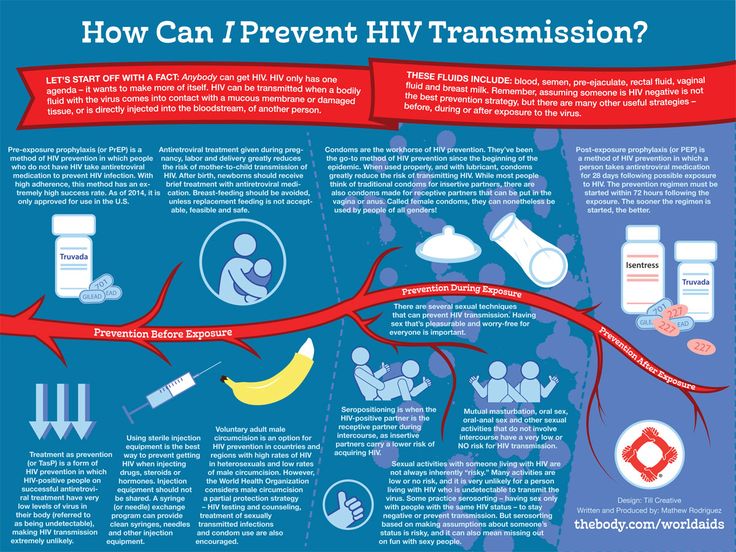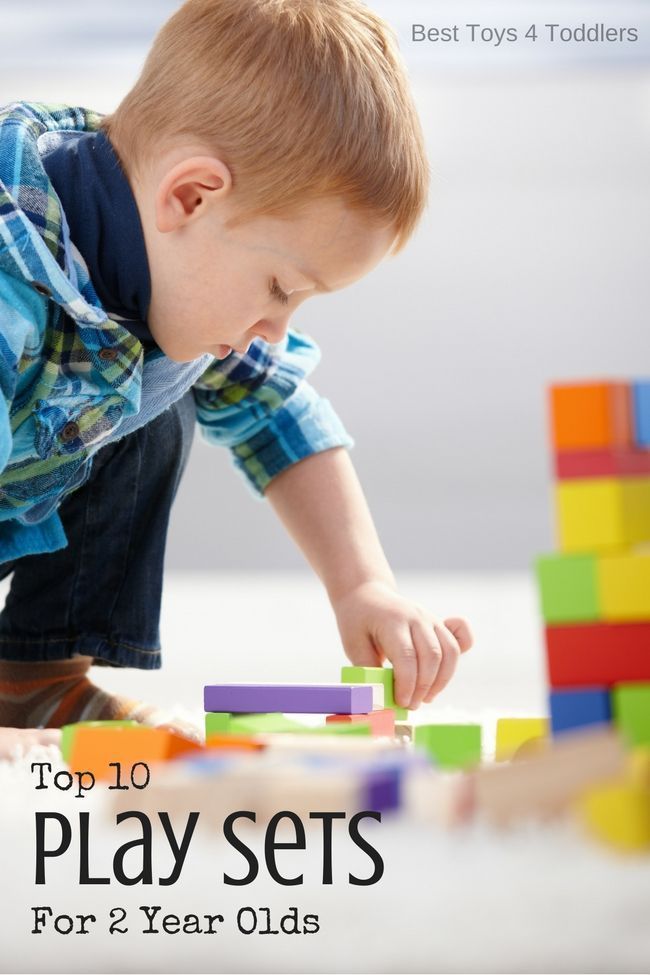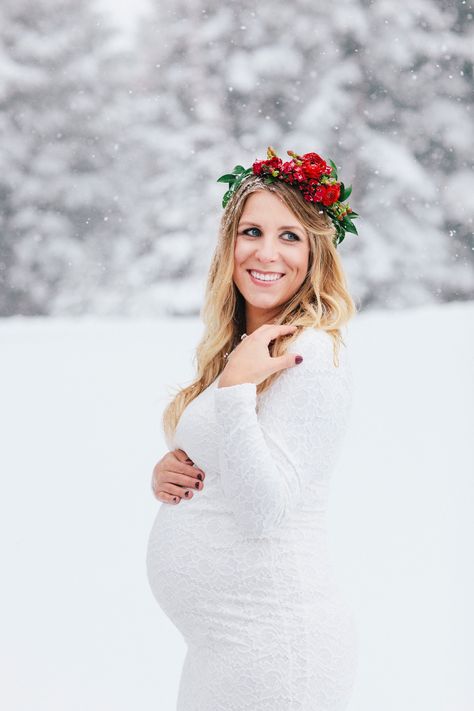Baby sleeping for a long time
What is normal and what to do
Most newborns spend more time asleep than they do awake, but their sleep may happen in small chunks or on an irregular schedule.
Managing a newborn’s sleep is one of the most challenging tasks associated with looking after a newborn.
Newly born babies are not accustomed to schedules or the rhythms of a typical day and night. For this reason, they might not sleep at what many people consider to be the appropriate times.
Some people may worry that their baby is sleeping too little or too much. Anyone who is concerned about a baby’s sleep habits could try keeping a sleep log. They might find that the newborn is sleeping much less, or much more, than they thought.
This article discusses how much and how often a newborn baby should sleep.
Most newborns sleep for around 8–9 hours during the day and 8 hours at night. Most also wake up at least every 3 hours to feed.
However, this timing varies widely. Some newborns may only sleep for 11 hours per day, while others may sleep for up to 19 hours per day. Also, newborns may sleep more or less than usual when they are sick or when they experience a disruption to their regular routine.
Most newborns also do not sleep in one stretch. They usually sleep for only about 1–2 hours at a time, though some may sleep a little more or less than this. In the first couple of weeks, it is normal for a newborn to wake up to feed and then go right back to sleep.
As newborns grow into infants, they begin to develop a schedule. They eventually start sleeping longer at night, though they may still wake several times to feed.
By the age of 6 months, 90% of babies sleep through the night. Even then, though, there is a significant variation from baby to baby.
A baby occasionally sleeping for longer than usual is not a cause for concern unless there are other symptoms.
In general, it is uncommon for a newborn to consistently sleep through feedings or to sleep for longer than 19 hours per day unless they are ill or are having feeding difficulties.
Some of the most common reasons that healthy babies sleep for longer than usual include the following:
- They may experience a growth spurt or developmental leap.
- They may have a minor illness, such as a cold.
- They may have a serious infection. This is rare, but it can happen. A newborn might not have a fever or other symptoms of illness like an older baby might.
- In very rare instances, a baby may have another medical condition that causes them to sleep too much. Breathing and heart disorders may affect sleep, and premature babies often have different sleep patterns from full-term infants.
- Some babies sleep too much because they have jaundice. A newborn who has jaundice will have a yellow color to their skin and a yellow cast to the whites of their eyes. Other symptoms of more severe jaundice include being lethargic, having difficulty eating, and being fussy or irritable.
- Sometimes, babies may sleep too much because they are not getting enough to eat.
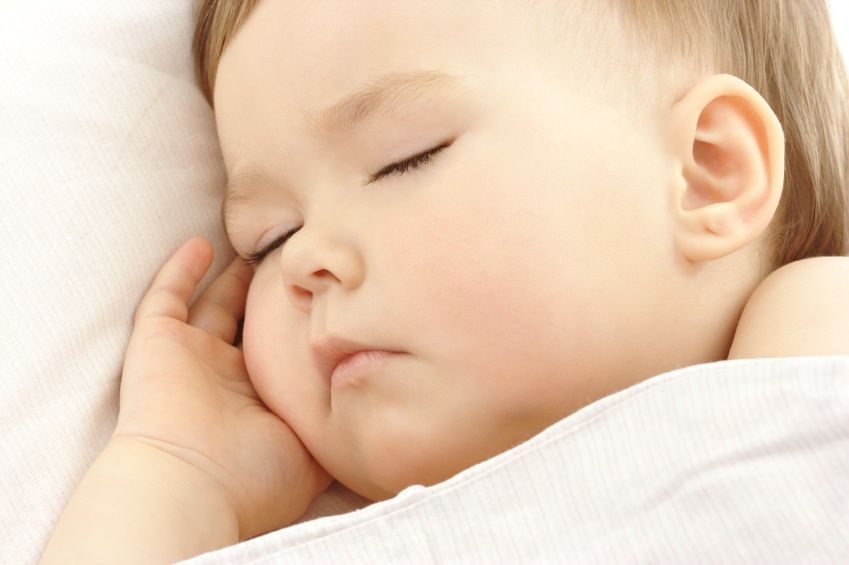 They may get dehydrated, lose too much weight, and even experience a failure to thrive.
They may get dehydrated, lose too much weight, and even experience a failure to thrive.
The latter could happen if there is a problem with nursing because a breastfeeding, or chestfeeding, person cannot measure how much their baby is eating compared with a person who is formula feeding. They rely on external signs, such as the baby’s weight gain and diaper output.
However, in the early stages — especially for first-time parents — the signs of a potential problem may be easy to miss.
The good news is that early intervention from a pediatrician and nursing consultant can ensure that a baby is getting enough food and reassure people that breastfeeding, or chestfeeding, is possible.
A baby, whether breastfed, chestfed, or formula fed, may not be getting enough to eat if the following apply:
- They seem very lethargic and unresponsive.
- They are 14 days old and have not retained their birth weight.
- They are more than 6 weeks old and are consistently gaining less than 4–6 ounces per week.

- They are producing fewer than four very wet diapers per day.
- They do not seem calmer after eating.
Newborns often cluster-feed, which means that they may eat several times over the course of 1–2 hours or nurse for an extended period. Most newborns should eat every 2–3 hours (or eight to 12 times every 24 hours) or more if a pediatrician recommends so or if the baby is not gaining enough weight.
Feeding a newborn whenever they show hunger cues — such as rooting, sucking, or sticking out their tongue — is the best way to ensure that they get enough food.
It is not necessary to wake most older newborns up to eat. However, those younger than 1 month old or so may not wake up when they feel hungry. Babies younger than 4 weeks old should not go longer than 4–5 hours without food.
To wake a baby up to eat, try brushing the side of their cheek. This can trigger the rooting reflex. Most babies dislike having their feet stroked. So, if stroking the cheek does not work, try gently wiggling the baby’s toes or gently stroking the bottoms of their feet.
Food needs vary from baby to baby. Parents and caregivers should consult a pediatrician or nursing expert, who can offer individual advice based on the needs and development of the baby.
Usually, a newborn who appears to be sleeping too much is just sleeping on an irregular schedule.
Nevertheless, health issues such as respiratory infections that are minor annoyances in older babies can be much more dangerous in newborns. So, anyone who is concerned about a baby’s sleeping schedule should consult a pediatrician.
Some strategies to try before calling the doctor include:
- feeding the baby every time they show hunger cues
- offering the baby the breast, the chest, or a bottle every 1–2 hours to ensure adequate food intake
- making sure that the baby is not too cold or too hot
- keeping a log of the baby’s sleep schedule for 1–2 days
When in doubt, contact a doctor. Only a doctor can accurately determine the reason that a newborn is sleeping too much. In many cases, a pediatrician may be able to assess the problem over the phone.
In many cases, a pediatrician may be able to assess the problem over the phone.
Excess sleep in a newborn is not typically an emergency unless they also show signs of respiratory problems. Call a doctor or go to the emergency room if the following apply:
- The baby is gasping for air or wheezing.
- The baby’s breathing is very loud.
- The baby’s nostrils flare when they breathe.
- The skin around the baby’s ribs sinks in when they breathe.
- The baby has a fever.
- The baby may have inhaled, touched, or eaten something toxic.
Finding the rhythm of a newborn’s sleeping pattern is a constant challenge. Most babies settle into a comfortable routine sooner or later. Parents and caregivers should eventually understand what is and is not normal for their baby.
It is common to worry about a baby’s sleep. This concern often helps people detect problems early and encourages them to seek expert advice when necessary.
Anyone who is worried that a baby may be sleeping too much should talk with a pediatrician.
Baby sleep: what to expect at 2-12 months
Baby sleep needs
Babies need sleep to grow and develop well. But babies’ sleep needs vary, just as the sleep needs of older children and adults do. Your baby might be doing well with more or less sleep than other babies the same age.
Your baby’s mood and wellbeing is often a good guide to whether your baby is getting enough sleep. If your baby is:
- wakeful and grizzly, they might need more sleep
- wakeful and contented, they’re probably getting enough sleep.
How baby sleep changes from 2 to 12 months
As they get older, babies:
- sleep less in the daytime
- are awake for longer between naps
- have longer night-time sleeps and wake less at night
- need less sleep overall.
2-3 months: what to expect from baby sleep
At this age, babies sleep on and off during the day and night. Most babies sleep for 14-17 hours in every 24 hours.
Young babies sleep in cycles that last 50-60 minutes. In young babies, each cycle is made up of active sleep and quiet sleep. Babies move around and grunt during active sleep, and sleep deeply during quiet sleep.
At the end of each cycle, babies wake up for a little while. They might grizzle or cry. They might need help to settle for the next sleep cycle.
At 2-3 months, babies start developing night and day sleep patterns. This means they tend to start sleeping more during the night.
Around 3 months: what to expect from baby sleep
Babies keep developing night and day sleep patterns.
Their sleep cycles consist of:
- light sleep, when baby wakes easily
- deep sleep, when baby is sound asleep and very still
- dream sleep, when baby is dreaming.
Sleep cycles also get longer, which might mean less waking and resettling during sleep. At this age, some babies might regularly be having longer sleeps at night – for example, 4-5 hours.
Most babies still sleep for 14-17 hours in every 24 hours.
3-6 months: what to expect from baby sleep
At this age, most babies sleep for 12-15 hours every 24 hours.
Babies might start moving towards a pattern of 2-3 daytime sleeps of up to two hours each.
And night-time sleeps get longer at this age. For example, some babies might be having long sleeps of six hours at night by the time they’re six months old.
But you can expect that your baby will still wake at least once each night.
6-12 months: what to expect from baby sleep
Babies sleep less as they get older. By the time your baby is one year old, baby will probably sleep for 11-14 hours every 24 hours.
Sleep during the night
From about six months, most babies have their longest sleeps at night.
Most babies are ready for bed between 6 pm and 10 pm. They usually take less than 40 minutes to get to sleep, but some babies take longer.
At this age, baby sleep cycles are closer to those of grown-up sleep – which means less waking at night. So your baby might not wake you during the night, or waking might happen less often.
But many babies do wake during the night and need an adult to settle them back to sleep. Some babies do this 3-4 times a night.
Sleep during the day
At this age, most babies are still having 2-3 daytime naps that last for between 30 minutes and 2 hours.
6-12 months: other developments that affect sleep
From around six months, babies develop many new abilities that can affect their sleep or make them more difficult to settle:
- Babies learn to keep themselves awake, especially if something interesting is happening, or they’re in a place with a lot of light and noise.
- Settling difficulties can happen at the same time as crawling. You might notice your baby’s sleep habits changing when baby starts moving around more.
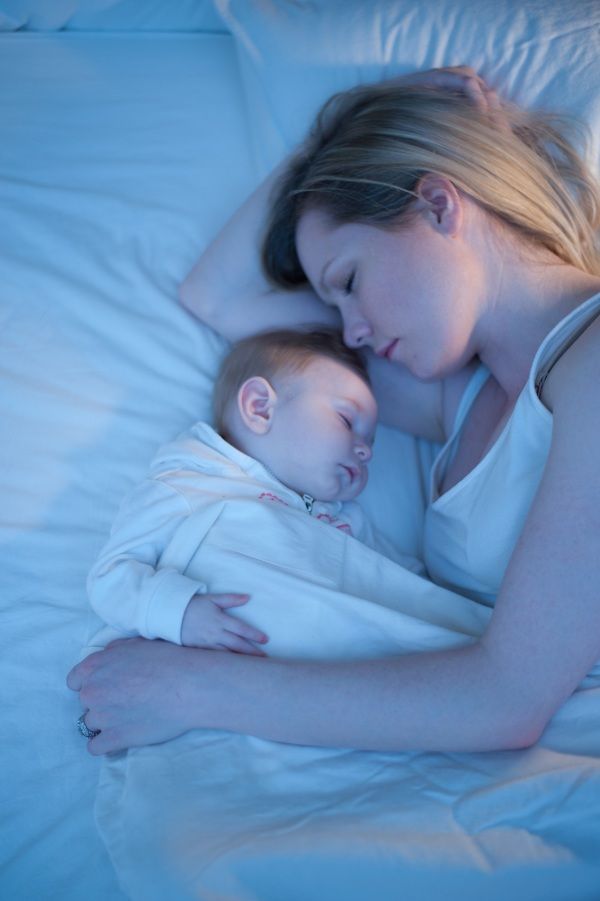
- Babies learn that things exist, even when they’re out of sight. Now that your baby knows you exist when you leave the bedroom, baby might call or cry out for you.
- Separation anxiety is when babies get upset because you’re not around. It might mean your baby doesn’t want to go to sleep and wakes up more often in the night. As babies mature they gradually overcome this worry.
6-12 months: night-time feeding
From around six months of age, if your baby is developing well, it’s OK to think about night weaning and phasing out night feeds. But if you’re comfortable with feeding your baby during the night, there’s no hurry to phase out night feeds.
You can choose what works best for you and your baby.
A rollover feed is a late feed somewhere between 10 pm and midnight. Some parents find that rollover feeds help babies sleep longer towards morning. If this works for you and your baby, it’s fine to give baby a rollover feed.
Concerns about baby sleep
If you’re concerned about your baby’s sleep, it can be a good idea to track your baby’s sleep for a week or so. This can help you get a clear picture of what’s going on.
This can help you get a clear picture of what’s going on.
You can do this by drawing up a simple chart with columns for each day of the week. Divide the days into hourly blocks, and colour the intervals when your baby is asleep. Keep your chart for 5-7 days.
Once completed, the chart will tell you things like:
- when and how much sleep your baby is getting
- how many times your baby is waking during the night
- how long your baby is taking to settle after waking.
You can also record how you tried to resettle your baby and what worked or didn’t work.
Then you can compare the information in your chart with the general information about baby sleep needs above:
- How does your child compare to other babies the same age? If your baby is wakeful and grizzly and getting much less sleep than others, your baby might need more opportunities for sleep.
- How many times is your baby over six months old waking up during the night? If it’s 3-4 times a night or more, you might be feeling very tired.
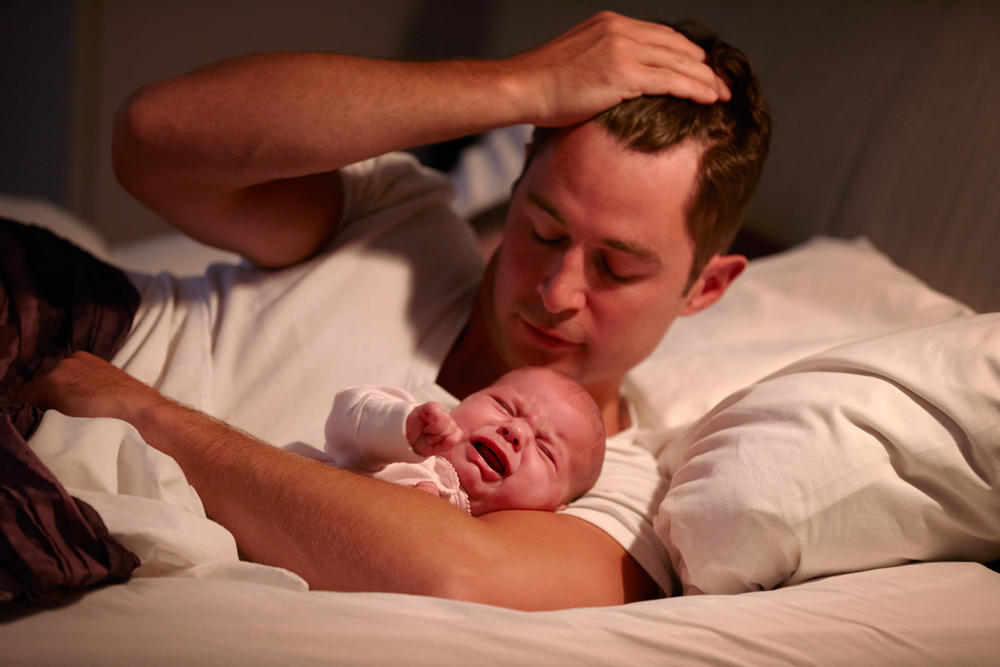 You might want to think about phasing out some of your baby’s sleep habits.
You might want to think about phasing out some of your baby’s sleep habits.
If you decide you need to see a professional for help with your baby’s sleep, take your chart with you.
If you’re concerned about your baby’s sleep, it’s a very good idea to see a child health professional for help. You could start by talking with your GP or child and family health nurse.
How baby sleep patterns affect grown-ups
Babies and grown-ups need sleep for wellbeing, but babies sleep differently from adults. Most parents of babies under six months of age get up in the night to feed and settle their babies. For many, this keeps going after six months.
Some parents are OK with getting up a lot at night as long as they have enough support and they can catch up on sleep at other times. For others, getting up in the night over the long term has a serious effect on them and their family lives.
The quality of your sleep can affect your health and your mood. Being exhausted can make it hard to give your baby positive attention during the day.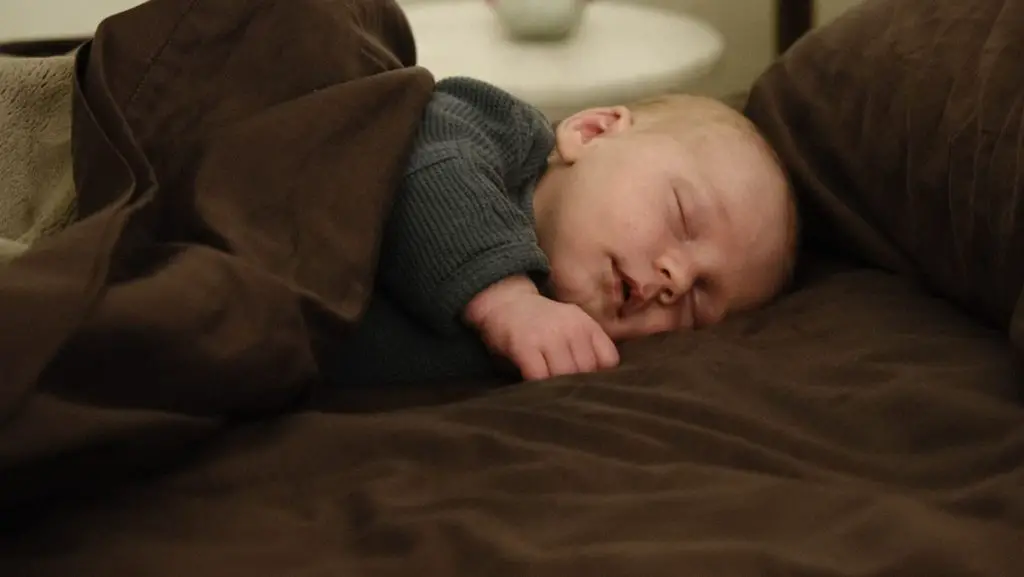 And your relationship with your baby and the time and attention you give baby during the day can affect the quality and quantity of baby’s sleep.
And your relationship with your baby and the time and attention you give baby during the day can affect the quality and quantity of baby’s sleep.
So it’s important that you get some help if you’re not getting enough sleep. You could start by asking family or friends for help. And if you feel that lack of sleep is affecting you mentally or emotionally, it’s a very good idea to talk with your GP or another health professional.
There’s a strong link between baby sleep difficulties and symptoms of postnatal depression in women and postnatal depression in men. But the link isn’t there if parents of babies with sleep difficulties are getting enough sleep themselves.
Languages other than English
- Arabic (PDF: 471kb)
- Dari (PDF: 469kb)
- Karen (PDF: 298kb)
- Persian (PDF: 420kb)
- Simplified Chinese (PDF: 502kb)
- Vietnamese (PDF: 324kb)
Article | How much sleep do healthy babies get?
Popular wisdom says: "In any incomprehensible situation, go to bed" and "Morning is wiser than evening. " These proverbs were born only when observing babies. Indeed, sleep solves many problems for them. He slept a little longer - and everything is fine with him, he got stronger, grew up and wakes up in a good mood. Why is that?
" These proverbs were born only when observing babies. Indeed, sleep solves many problems for them. He slept a little longer - and everything is fine with him, he got stronger, grew up and wakes up in a good mood. Why is that?
Why sleep is so important
Sleep is not just a time of rest when nothing happens to us. This is a whole complex of mechanisms invisible to the eye, the work of which goes according to a certain scenario. Sleep should be treated with respect and attention. Sleep time should never be sacrificed. Sleep deficiency in an adult causes a 45% decline in working capacity, and chronic sleep deprivation can lead to depression, overeating, behavioral changes, irritability, and reduced immunity.
If you don't get enough sleep, your mood will be bad and your child will have to deal with a lethargic and irritable mother. Sleep deprivation is one of the main problems of young parents. A newborn does not always sleep "baby sleep" all night, which means that they themselves cannot sleep. On the one hand, all modern parents already know that in the first year of a child's life they will not sleep much. On the other hand, there are things you can do for your own health and for the health of your baby. Namely, try to improve his sleep, especially at night. How to do it?
On the one hand, all modern parents already know that in the first year of a child's life they will not sleep much. On the other hand, there are things you can do for your own health and for the health of your baby. Namely, try to improve his sleep, especially at night. How to do it?
Hours of sleep and wakefulness
It is not in vain that the baby spends almost all his time in sleep. It is at this moment that it grows and develops: in the first 2 hours after falling asleep, growth hormone is actively produced. Quality sleep protects the psyche from overwork, strengthens the immune system. It is known that children with improved sleep get sick 30% less. Children's sleep is so important that it will easily overtake all other worries and affairs in the list of priorities. Elena Muradova, a certified consultant on children's and family sleep, suggests such a distribution of the phases of wakefulness and sleep by months.
The table is based on observations of the sleep of healthy infants. It's an average, but it's easy to get an idea of how kids sleep most of the time. Of course, these are not strict norms, but a guideline for parents.
It's an average, but it's easy to get an idea of how kids sleep most of the time. Of course, these are not strict norms, but a guideline for parents.
Rhythm of life
Despite the fact that opinions about feeding and sleeping strictly by the clock have long and irrevocably been divided, and habits and way of life in each family are individual, the regimen is still useful to everyone. Both children and parents. The regime is not like a rigid schedule, but like a logical alternation of different phases. It is noticed that the child prefers the predictability of repeating cycles. Thus, biorhythms are easier to establish, which will ensure a healthy rhythm of life, comfortable for both the child and all family members.
If you want to fine-tune the daily routine, the best way to do this is to observe and perhaps record how the child behaves during the day. And here there is one secret - to catch the moment, which experts call "window to sleep". During this period of time, the baby is just starting to get tired, but is still in a good mood. As soon as you see that the child's natural activity is waning, you urgently need to leave everything and try to put the baby to sleep.
Signs of fatigue
- Baby rubs eyes;
- yawns;
- naughty;
- his mood deteriorates;
- loses interest in the environment;
- turns away;
- becomes less mobile;
- pulls the ear.
If you do not catch these signs and skip the first stage of drowsiness, then overexcitation may occur, the baby will begin to act up, cry, not breastfeed, refuse to fall asleep. At the moment of danger, an ancient mechanism is activated that prevents sleep: the adrenal glands release hormones into the blood, and at this moment a "second wind" opens. In this state, it is very difficult to put the baby to sleep! Of course, fatigue will take its toll, and the baby will fall asleep, but perhaps already with hysteria and tears. So it is important to catch the moment before the “window to sleep” closes.
A helpful ritual
Children love it when things happen in sequence, and always in the same order. So they are calmer and they feel safe. This directly applies to the main infant activity - sleep. You need to develop a clear bedding ritual and always stick to it. Dim the lights in the room where the baby will sleep, avoid harsh sounds. A good sleep is where it is quiet, dark, comfortable temperature, and the air is fresh.
By the age of 3 months, you can develop a sleep-wake cycle that is comfortable for you and your baby. With age, the number of episodes of daytime sleep decreases and the main sleep occurs at night. Usually it is 5 hours without waking up for night feedings.
Parent traps
Should a child be rocked? Is it possible to teach a child to fall asleep on his own? How long should the laying ritual last? There are no "correct" answers to such questions. Everyone needs a bedtime ritual, but what exactly it will be depends only on you. What you accustom yourself and your child to will happen day after day.
When your baby is 6-8 weeks old, start giving him a chance to fall asleep on his own. How? Put him to bed when he's sleepy but still awake, experts advise.
The bedtime ritual marks the beginning of sleep, introduces the baby into it, relaxes, fills it with love. Sleep experts advise against rocking or feeding your baby before bed. Parents think that if they start training the child too early, it will not work. But this is not so. Babies develop sleep habits. If you rock your baby before bed every night for the first 8 weeks, why should he expect anything else later?
It is important that the child falls asleep where he will sleep. His consciousness remembers the circumstances of falling asleep, and if he suddenly wakes up by accident, he will not understand where he found himself. Anxiety will awaken him completely, and you will have to start all over again. Such associations associated with sleep begin to form in a child from 4 months.
There is another mistake that inexperienced parents make: they think that if they put the child to bed later, he will not wake up too early in the morning. At first glance, this is a good idea - teenagers, for example, when they go to bed late, the next day they sleep until noon! Unfortunately, this does not work with young children. The biological clock is a powerful force that wakes young children up at the same time every morning, no matter what time they fall asleep in the evening. Parents who put their child to bed late will get a tired and lethargic baby with signs of apparent lack of sleep the next day. Do not neglect the regime! The child must sleep through the hours of the night assigned to him.
At first glance, this is a good idea - teenagers, for example, when they go to bed late, the next day they sleep until noon! Unfortunately, this does not work with young children. The biological clock is a powerful force that wakes young children up at the same time every morning, no matter what time they fall asleep in the evening. Parents who put their child to bed late will get a tired and lethargic baby with signs of apparent lack of sleep the next day. Do not neglect the regime! The child must sleep through the hours of the night assigned to him.
What determines a child's sleep
Once again, we emphasize that the norms of children's sleep are indicative and each child needs his own number of hours of sleep. What does it depend on?
Genetic features or hereditary predisposition. All people are divided into long-sleepers and short-sleepers. Those who get enough sleep for 8-10 hours of sleep are long-sleepers, while those who need 6-7 hours of sleep are short-sleepers.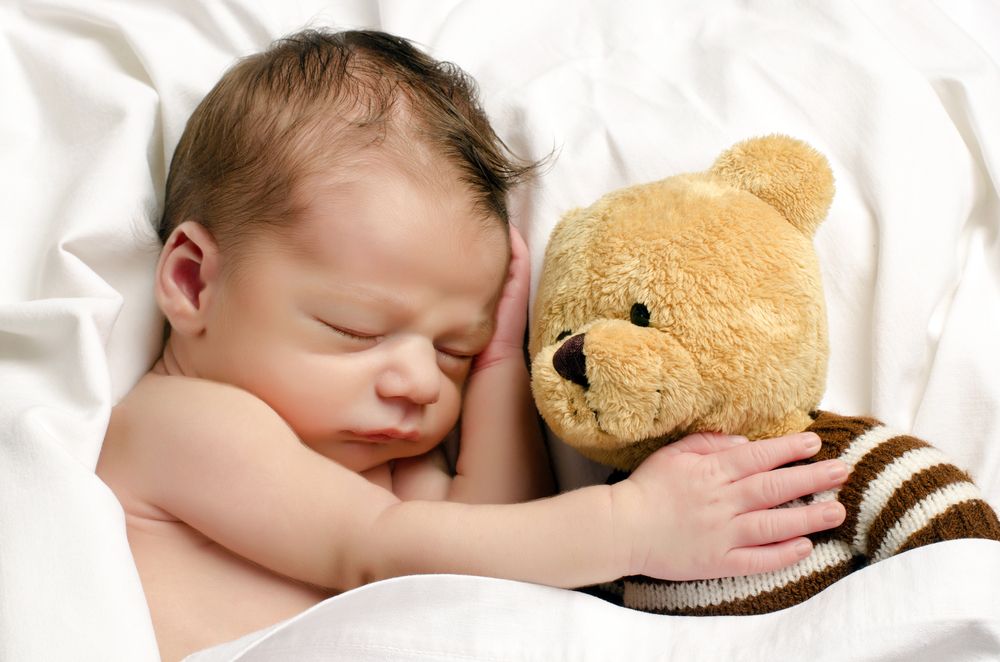 This feature is passed on to your baby. But not only genetics affects the need for sleep.
This feature is passed on to your baby. But not only genetics affects the need for sleep.
Activity while awake. When you work harder, you need more sleep to recover. If a child has received too many new experiences during the day, then he will sleep longer. If the child spent the day calmly, then, most likely, less sleep is needed.
State of health. When unwell, children sleep more and recover in sleep.
Sleep conditions. It has been proven that at a lower temperature, in darkness and with sufficient oxygen, sleep is better.
Sleep preparation can be stimulating or relaxing. Choose the right evening ritual.
IMPORTANT: Children under 5 years of age usually do better if they live on an early schedule, according to the body's biological clock.
And this means that the child should go to bed early and get up early. Then the children wake up fully asleep and in a good mood.
Wake up sleepyhead
Most often, parents sound the alarm when the baby does not sleep or sleeps poorly. But if the child sleeps a lot, parents are usually happy and rarely ask for help. But in vain: a baby under 1 month old who sleeps too long can suffer from dehydration and lose weight. If a baby older than 1 month sleeps more than usual, you need to observe him for a week and not rush to conclusions. If too much sleep is observed for 7 days or more, you should contact a neurologist to check the functioning of the nervous system.
But if the child sleeps a lot, parents are usually happy and rarely ask for help. But in vain: a baby under 1 month old who sleeps too long can suffer from dehydration and lose weight. If a baby older than 1 month sleeps more than usual, you need to observe him for a week and not rush to conclusions. If too much sleep is observed for 7 days or more, you should contact a neurologist to check the functioning of the nervous system.
If you can't manage your baby's sleep on your own, contact a sleep consultant. Children's sleep experts will analyze your regimen, sleep conditions and fall asleep and give all the necessary recommendations. The main criterion of the norm is always the good health of the baby, smiles and cheerfulness.
Sources:
Family Tree Parent Club
Project “Sleep, baby. Sleep Education
Baby Sleep Center for Children's Sleep and Development
Online School of Motherhood and Childhood Happy Mom
Fees des bebes
0 to 6 months
0 to 3 months
Typical sleep at this age
At this age, a newborn sleeps quite a lot - approximately 17 to 18 hours a day during the first few weeks and 15 hours a day by three months.
Children almost never sleep more than three or four hours at a time, day or night. This means that you will not be able to sleep for many hours in a row either. You will have to get up at night to feed and change your baby; during the day you will play with it. While some babies sleep through the night as early as 8 weeks old, many babies don't get that far until they are 5 or 6 months old. You will help your child achieve this result sooner by instilling good sleep habits in him from the very beginning.
How to develop healthy sleep habits?
Here's what you can do at this age to help your baby develop proper sleep habits:
Study your baby's signs of fatigue. If you don't put him to bed longer than this time, he will be overtired and won't be able to sleep well. Watch until you notice that the child is becoming sleepy. Does he rub his eyes, tug at his ear, do faint dark circles appear under his eyes? If you observe these or any other signs of drowsiness, send him straight to the crib.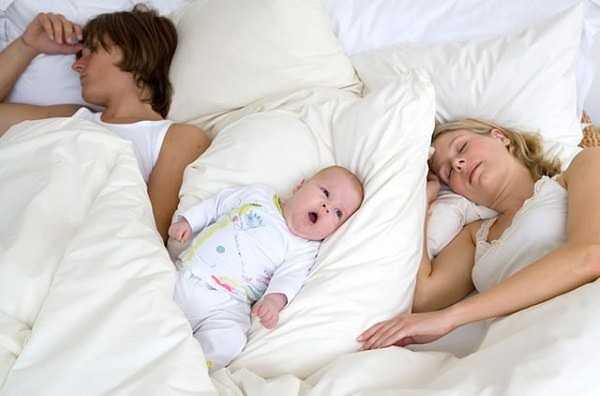 Soon you will become so familiar with your baby's daily rhythms and behaviors that you will develop a sixth sense and instinctively know when he is ready for bed.
Soon you will become so familiar with your baby's daily rhythms and behaviors that you will develop a sixth sense and instinctively know when he is ready for bed.
Start explaining the difference between day and night
Some babies are owls (you may have noticed some hints of this during pregnancy). And while you want to turn off the light, the child may still be very active. For the first few days, you won't be able to do anything about it. But once your baby is about 2 weeks old, you can start teaching him to tell the difference between night and day.
When the child is alert and active during the day, play with him, turn on the lights in the house and in his room, do not try to reduce the usual daytime noises (sounds of the phone, TV or dishwasher). If he falls asleep while feeding, wake him up. Do not play with your child at night. When you enter his feeding room, dim the lights and noise, don't talk to him for too long. It won't be long before your baby starts to understand that night time is for sleep.
Give him a chance to fall asleep on his own
When your baby is 6 to 8 weeks old, start giving him a chance to fall asleep on his own. How? Put him to bed when he's sleepy but still awake, experts advise. They discourage motion sickness or feeding the baby before bed. “Parents think that if they start training a child too early, it will not work,” they say, “But this is not so. Babies develop sleep habits. If you rock your baby before bed every night for the first eight weeks, why should he expect anything different later?
What difficulties might arise?
By the time your baby is 2 or 3 months old, he may already be waking up at night more than he should and developing negative sleep associations.
Newborns must wake up at night for food, but some may accidentally wake themselves before they really need to feed. To avoid this, try swaddling your baby (wrap him snugly in a blanket) before putting him to bed at night.
Avoid unnecessary associations with sleep - your child should not depend on motion sickness or feeding to fall asleep.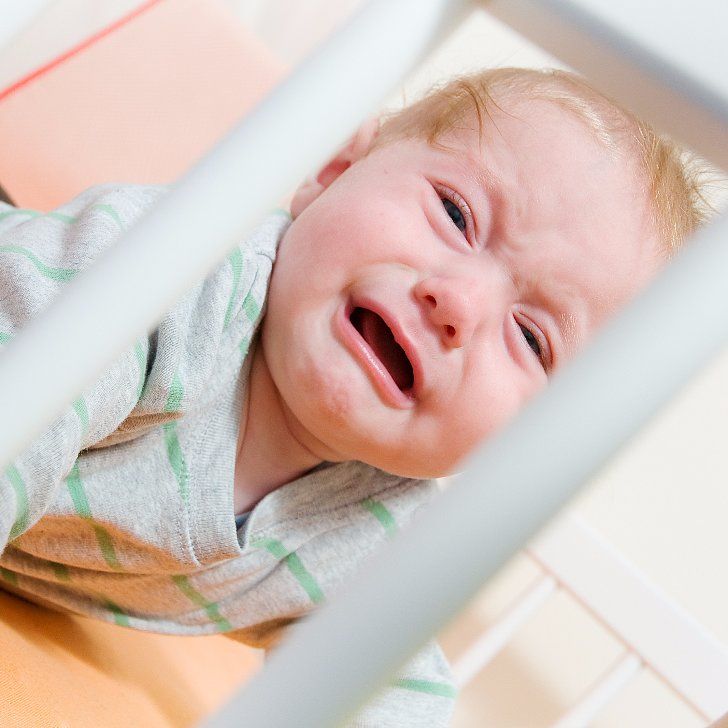 Put the baby to bed before he falls asleep and let him fall asleep on his own.
Put the baby to bed before he falls asleep and let him fall asleep on his own.
3 to 6 months
Typical sleep at this age
Congratulations! Now all your nightly rises every two or three hours are over (hopefully). By 3 or 4 months, most babies sleep 15 hours a day, 10 of them at night, and the rest of the time is divided between three naps (which will decrease to two when your baby is 6 months old).
At the start of this period, you may still get up once or twice a night for feeds, but by 6 months your baby will be able to sleep through the night. But it will depend on whether you develop healthy sleep habits in him.
How to develop healthy sleep habits?
Set a clear night and day sleep schedule and stick to it.
While your baby was a newborn, you could decide when to put him to bed during the night, watching for signs of sleepiness (rubbing his eyes, rubbing his ear, etc.). Now that he's a little older, you should set specific times for him to sleep at night and during the day.
In the evening, a good time for a child is between 19.00 and 20.30. Later, he will most likely be too tired and it will be difficult for him to fall asleep. Your child may not look tired late at night - on the contrary, he may seem very energetic. But believe me, this is a sure sign that it's time for the baby to sleep.
In the same way, you can set your nap time - schedule it for the same time every day, or feel free to put your baby to bed when you see that he is tired and needs to rest. Either approach is acceptable as long as the baby is getting enough sleep.
Start establishing a bedtime ritual
If you haven't already, it's time to start at 3-6 months of age. A bedtime ritual may include the following: give him a bath, play quiet games with him, read a bedtime story or two, sing a lullaby. Kiss him and say goodnight.
No matter what your family's ritual involves, you must do it in the same order, at the same time, every night. Children need consistency, and sleep is no exception.
Wake your child up in the morning
If your child often sleeps more than 10 hours at night, it is advisable to wake him up in the morning. Thus, you will help him restore the mode. Keeping a nightly sleep schedule may not seem difficult to you, but remember that your child should sleep on schedule and during the day. Waking up at the same time every morning will help.
What difficulties might arise?
The two problems of nocturnal awakenings and the development of negative sleep associations (when your baby becomes dependent on motion sickness or feeding as a prerequisite for falling asleep) affect both newborns and older children. But by about 3-6 months, another problem may arise - difficulty falling asleep.
If your child has difficulty falling asleep in the evening, first make sure that he does not stay up too late (as we mentioned, an overtired child has difficulty falling asleep). If this is not the case, then he may have developed one or more associations associated with sleep. Now is the time to get rid of them. The child must learn to fall asleep on his own, and not calmed down, thanks to your hands, chest, or dummy.
Now is the time to get rid of them. The child must learn to fall asleep on his own, and not calmed down, thanks to your hands, chest, or dummy.
What tactics to get rid of associations to choose is up to you. The easiest option is to wait until the child “shouts out and falls asleep”, which is not suitable for everyone.
References
- Larsen C., Boyd C., Villwock M., Steffen A., Heiser C., Boon M., Huntley C., Doghramji K., Soose RJ., Kominsky A., Waters T., Withrow K., Parker N., Thaler E., Dhanda Patil R., Green KK., Chio E., Suurna M., Schell A., Strohl K. Evaluation of Surgical Learning Curve Effect on Obstructive Sleep Apnea Outcomes in Upper Airway stimulation. // Ann Otol Rhinol Laryngol - 2021 - Vol130 - N5 - p.467-474; PMID:32924533
- Magalhaes MGS., Teixeira JB., Santos AMB., Clímaco DCS., Silva TNS., Lima AMJ. Construct validity and reproducibility of the six-minute step test in subjects with obstructive sleep apnea treated with continuous positive airway pressure.
 // J Bras Pneumol - 2020 - Vol46 - N3 - p.e20180422; PMID:32321033
// J Bras Pneumol - 2020 - Vol46 - N3 - p.e20180422; PMID:32321033 - Zhou K., Wang W., Zhao W., Li L., Zhang M., Guo P., Zhou C., Li M., An J., Li J., Li X. Benefits of a WeChat-based multimodal nursing program on early rehabilitation in postoperative women with breast cancer: A clinical randomized controlled trial. // Int J Nurs Stud - 2020 - Vol106 - NNULL - p.103565; PMID:32272281
- Noguchi T., Kashiwagi K., Fukuda K. The effectiveness of stabilization appliance therapy among patients with myalgia. // Clin Exp Dent Res - 2020 - Vol6 - N2 - p.244-253; PMID:32250573
- Rizio AA., Bhor M., Lin X., McCausland KL., White MK., Paulose J., Nandal S., Halloway RI., Bronté-Hall L. The relationship between frequency and severity of vaso-occlusive crises and health-related quality of life and work productivity in adults with sickle cell disease. // Qual Life Res - 2020 - Vol29 - N6 - p.1533-1547; PMID:31933113
- Behrendt D., Ebert DD., Spiegelhalder K., Lehr D.
 Efficacy of a Self-Help Web-Based Recovery Training in Improving Sleep in Workers: Randomized Controlled Trial in the General Working Population. // J Med Internet Res - 2020 - Vol22 - N1 - p.e13346; PMID:31909725
Efficacy of a Self-Help Web-Based Recovery Training in Improving Sleep in Workers: Randomized Controlled Trial in the General Working Population. // J Med Internet Res - 2020 - Vol22 - N1 - p.e13346; PMID:31909725 - Davis KA., Edgar-Zarate CL., Bonilla-Velez J., Atkinson TN., Tulunay-Ugur OE., Agarwal A. Using Didactics and Simulation to Enhance Comfort, Knowledge, and Skills of Nonsurgical Trainees Caring for Patients With Tracheostomy and Laryngectomy. // Simul Healthc - 2019 - Vol14 - N6 - p.384-390; PMID:31804423
- Koo BB., Sico JJ., Myers LJ., Perkins AJ., Levine D., Miech EJ., Damush TM., Rattray N., Homoya B., Ferguson J., Myers J., Zhang Y., Bravata DM. Polysomnography Utilization in Veterans Presenting Acutely with Ischemic Stroke or Transient Ischemic Attack. // Cerebrovasc Dis - 2019- Vol48 - N3-6 - p.179-183; PMID:31722335
- Jabrayilov R., Vermeulen KM., Detzel P., Dainelli L., van Asselt ADI., Krabbe PFM. Valuing Health Status in the First Year of Life: The Infant Health-Related Quality of Life Instrument.


